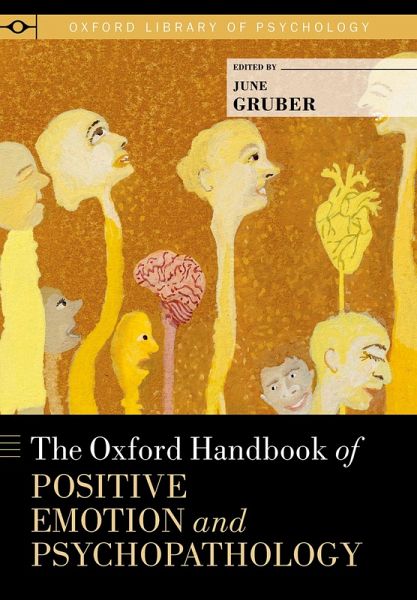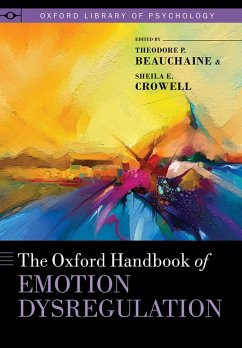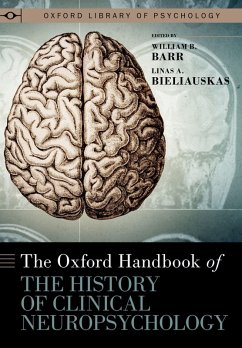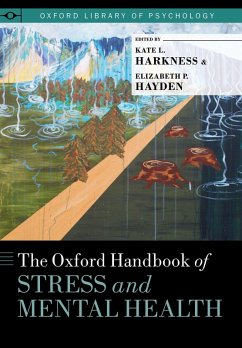
The Oxford Handbook of Positive Emotion and Psychopathology (eBook, ePUB)
Versandkostenfrei!
Sofort per Download lieferbar
100,95 €
inkl. MwSt.
Weitere Ausgaben:

PAYBACK Punkte
50 °P sammeln!
Considerable research has been devoted to understanding how positive emotional processes influence our thoughts and behaviors, and the resulting body of work clearly indicates that positive emotion is a vital ingredient in our human quest towards well-being and thriving. Yet the role of positive emotion in psychopathology has been underemphasized, such that comparatively less scientific attention has been devoted to understanding ways in which positive emotions might influence and be influenced by psychological disturbance. Presenting cutting-edge scientific work from an internationally-renown...
Considerable research has been devoted to understanding how positive emotional processes influence our thoughts and behaviors, and the resulting body of work clearly indicates that positive emotion is a vital ingredient in our human quest towards well-being and thriving. Yet the role of positive emotion in psychopathology has been underemphasized, such that comparatively less scientific attention has been devoted to understanding ways in which positive emotions might influence and be influenced by psychological disturbance. Presenting cutting-edge scientific work from an internationally-renowned group of contributors, The Oxford Handbook of Positive Emotion and Psychopathology provides unparalleled insight into the role of positive emotions in mental health and illness. The book begins with a comprehensive overview of key psychological processes that link positive emotional experience and psychopathological outcomes. The following section focuses on specific psychological disorders, including depression, anxiety, trauma, bipolar disorder, and schizophrenia, as well as developmental considerations. The third and final section of the Handbook discusses translational implications of this research and how examining populations characterized by positive emotion disturbance enables a better understanding of psychiatric course and risk factors, while simultaneously generating opportunities to bridge gaps between basic science models and psychosocial interventions. With its rich and multi-layered focus, The Oxford Handbook of Positive Emotion and Psychopathology will be of interest to researchers, teachers, and students from a range of disciplines, including social psychology, clinical psychology and psychiatry, biological psychology and health psychology, affective science, and neuroscience.
Dieser Download kann aus rechtlichen Gründen nur mit Rechnungsadresse in A, B, BG, CY, CZ, D, DK, EW, E, FIN, F, GR, HR, H, IRL, I, LT, L, LR, M, NL, PL, P, R, S, SLO, SK ausgeliefert werden.













